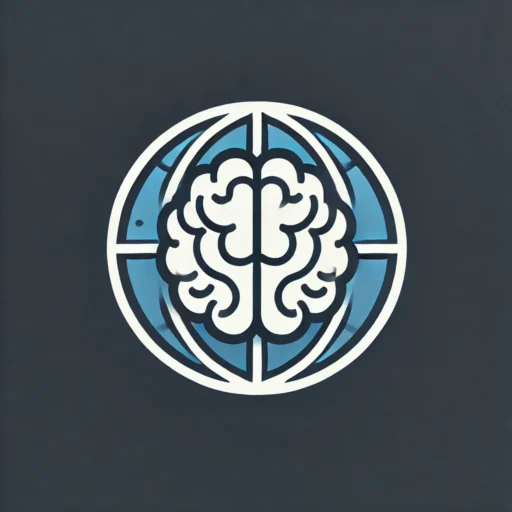Are We Living in a Simulation? The Science Behind the Theory
Have you ever wondered if life as we know it is just a hyper-realistic computer simulation? It’s a question that has sparked curiosity in thinkers ranging from scientists to philosophers and even Hollywood filmmakers. The simulation theory—the idea that our reality might be an advanced computational construct—brings together science, technology, and philosophy in a way that challenges everything we believe about existence.
For young professionals, digital nomads, and wellness seekers, this concept also connects to our lifestyle choices, mental health, and the role technology plays in shaping our lives. This blog dives into the science and philosophy behind the simulation theory and explores its fascinating implications for wellness, physical fitness, and sustainability in our modern world.
What Is the Simulation Theory?
The simulation theory, popularized by philosopher Nick Bostrom in 2003, suggests three possibilities for humanity’s future:
- Advanced civilizations could become extinct before creating realistic simulations.
- Advanced civilizations might lose interest in running simulations of their evolutionary history.
- Our reality may already be a computer simulation.
Proponents of this theory include Elon Musk, who has famously claimed there’s only a “one in billions” chance that we’re living in base reality. While it might sound like the plot of The Matrix, the simulation hypothesis has gained traction due to advancements in artificial intelligence, quantum computing, and virtual reality.
Science Meets Philosophy
From a scientific perspective, quantum mechanics and computational theory bolster the simulation hypothesis. Quantum physicists have noted that the universe operates in discrete, pixilated chunks, much like a computational system. Philosophically, Bostrom argues that if advanced simulations are possible, then it’s statistically likely we’re living in one.
But why does it matter whether we’re living in a simulation? Is it just a fun idea to debate, or does it have meaningful implications for how we live our lives?
Relevance to Everyday Life
The simulation theory challenges our understanding of purpose and accountability. If everything is a simulation, does it make our sleep routines, health habits, or diet trends irrelevant? Or does it emphasize the importance of enhancing every experience to its fullest?
Personal Health in a Simulated World
If we’re living in a fabricated reality, how should that change the way we approach health? Whether you believe in the hypothesis or not, advanced technologies and digital tools offer new ways to optimize wellness in this “reality.”
The Future of Diets and Wellness
Dr. Jane Doe, a leading nutritional expert, emphasizes the need for discernment in a tech-driven world. “As we integrate more technology into our diets, it becomes crucial to discern between fads and sustainable health choices,” she advises.
Emerging Diet Trends 2025, like AI-curated nutrition plans, are increasingly blending tech into our health journeys. Smart devices analyze our daily activity, sleep cycles, and even gut biology to recommend personalized meal plans. But not everything labeled as “tech-savvy” or “futuristic” is beneficial. Supplement myths, for example, can lead to misinformation and overdependence on health technology.
Sleep Optimization in a Tech Era
With simulation theory stirring debates on the “realness” of time, it’s ironic that optimizing sleep remains one of the most grounded and natural health habits. Tools like wearable devices and meditation apps have played a crucial role in helping people understand and improve their sleep cycles.
Wellness and Sustainability
Sustainable Practices with Tech
Even if life is a simulation, sustainability still matters. How we treat resources within the “program” creates ripple effects—both real and simulated. Environmental scientist Michael Taylor reminds us, “The sustainability of our actions in a potentially simulated world takes on new significance, urging us to consider the far-reaching effects of our choices.”
Digital wellness pairs seamlessly with sustainability. From eco-friendly apps that track carbon footprints to smart systems for reducing waste, technology is paving the way for modern, mindful living.
Alex Smith, a tech guru, emphasizes, “Digital wellness is not just a trend; it’s a lifestyle necessity, especially in a world where we question the very nature of our reality.”
Mental Health and the Future
The mental health crisis has pushed society to question what wellness truly means, especially if our existence is ultimately a programmed construct. Far from trivial, simulation theory forces introspection about values, purpose, and self-care.
Technological Tools for Mental Wellbeing
Apps like BetterHelp and Headspace are leveraging AI to improve access to therapy and mindfulness resources. For those feeling existential dread over consciousness—or “simulation theory anxiety”—technology provides pathways to reframe thinking and reduce anxiety. Wellness blogger Sarah Lee sums it up beautifully: “The simulation theory has sparked conversations about the importance of mental health and well-being, shedding light on how we can support and improve our state of wellness.”
Physical Fitness and Longevity
Fitness Meets Philosophy
The intersection of physical fitness and the simulation hypothesis is surprisingly practical. Fitness influencers are now incorporating sustainability into their fitness routines, educating audiences about ways to lead long, healthy lives—even if it’s within a “programmed reality.”
Max Power, a fitness influencer and advocate for sustainable fitness, shares, “Adopting sustainable wellness means creating fitness goals that are easy to maintain, realistic, and rewarding—not just for you, but for the environment you live in.”
Practical Strategies for Sustainable Fitness
- Invest in durable, eco-friendly workout gear.
- Use apps like Strava to monitor progress while minimizing unnecessary purchases.
- Choose outdoor activities to stay grounded in nature’s beauty, regardless of its “reality.”
Rethinking Wellness in a Simulated World
The beauty of simulation theory lies not in its answer (which we don’t have yet!) but in the way it makes us question the reality we take for granted. Whether life is a simulation or not, prioritizing wellness—physical, mental, and environmental—is essential for living a fulfilled existence.
And hey, if simulation theory teaches us anything, it reminds us to enjoy the present moment. Treat your body, mind, and the “world” with care—you deserve it!
Share Your Thoughts!
What do you think about simulation theory’s impact on our health, lifestyle, and sustainability? Drop your thoughts in the comments or connect with us on social media.

